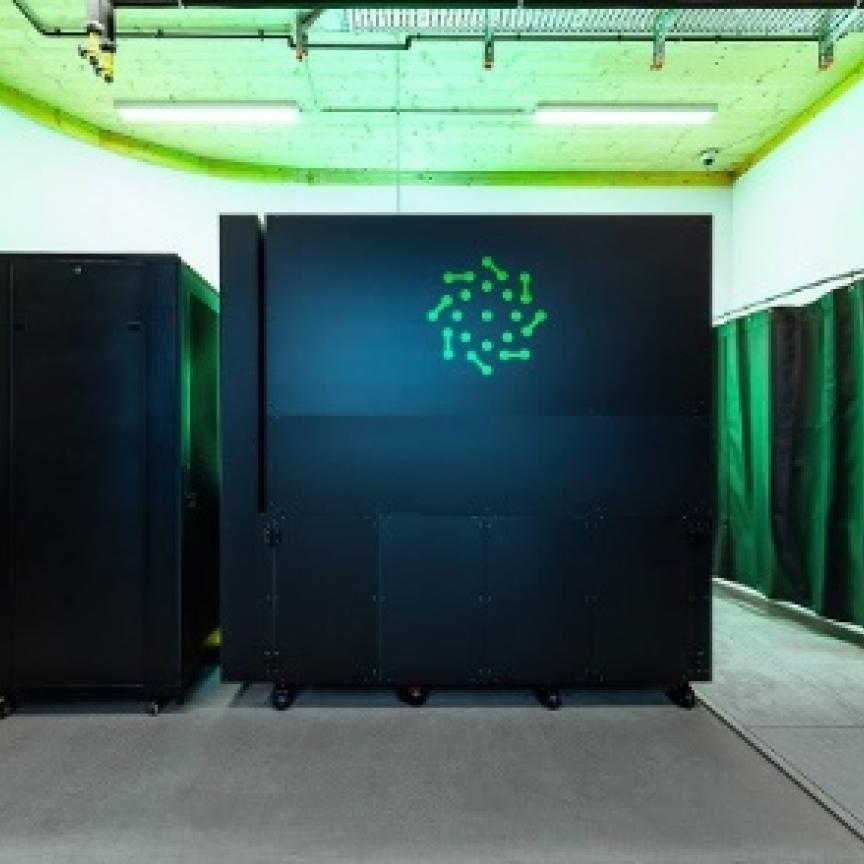Simon Fraser University (SFU), Compute Canada and WestGrid were all part of the major new update to Canad's HPC resources with the recent announcement of the launch of the most powerful academic supercomputer in Canada, Cedar. Housed in the new data centre at SFU’s Burnaby Campus, Cedar will serve Canadian researchers across the country in all scientific disciplines by providing expanded compute, storage and cloud resources.
‘We are honoured to be one of the four new national advanced research computing (ARC) systems that will provide Canadian researchers access to the latest technology and expertise they need to make transformative scientific discoveries,’ says Joy Johnson, SFU’s vice-president, research and international. ‘SFU is a distinct leader in ARC and Cedar will place us in the world’s top 100 supercomputer installations.’
The SFU was founded almost 50 years ago and now has campuses in British Columbia's three largest cities—Vancouver, Surrey, and Burnaby. SFU has eight faculties, delivering almost 150 programs to over 30,000 students, and boasts more than 130,000 alumni in 130 countries around the world.
Compute Canada, in collaboration with its regional partners and member institutions, is leading a national renewal and modernisation of supercomputers and data storage facilities in the country. This first stage was funded through a $75 million investment from the Canada Foundation for Innovation (CFI) as well as provincial and industry partners and includes four national sites, one of which is the SFU system. The
‘I am pleased that our government, through the Canada Foundation for Innovation, is investing in the latest advanced scientific technology that will support front-line scientists whose contributions help us build a healthier, stronger middle class. Cedar will help scientists exchange ideas, collaborate and make discoveries that lead to faster technologies, new medical therapies and a more prosperous economy,’ comments the Honourable Kirsty Duncan, the Canadian Minister of Science.
‘Most research today is data intensive, whether your area is genomics, advanced materials, or humanities and social sciences,' stated Dr Dugan O’Neil, Compute Canada’s chief science officer and physics professor at SFU. ‘Cedar, and the three national other systems will serve a diverse range of research projects and enable discoveries that may not have otherwise happened because the tools were simply not there.’
Currently, there are 27 data centres and 50 aging legacy systems across Canada that will be consolidated into five to ten data centres by the end of 2018. This process starts with the cedar system which has a greater computational power than all of Compute Canada’s legacy systems. Cedar is designed to handle big data workflows and will support researchers collecting, analysing or sharing immense volumes of data and will provide the scale and capacity required for today’s modern research needs.
Dr Fiona Brinkman, a professor in the Department of Molecular Biology and Biochemistry at SFU who runs a ‘microbe-loving bioinformatics and genomics research lab, aiming to better control infectious diseases in a sustainable way,’ is eager to get her hands on the new system.
‘The new ARC system, Cedar, will allow Canadian researchers to much more quickly analyse the DNA of microbes, allowing us to more rapidly track and understand the origins and spread of infectious disease outbreaks,’ says Brinkman.
‘For the community of over 11,000 Canadian researchers that we serve today, Cedar will give Canadian researchers and innovators the ability to compete and excel globally using big data and big compute tools,’ says Mark Dietrich, Compute Canada’s president and chief executive officer. ‘We’re honoured to collaborate with our partners at SFU and WestGrid and proud of the achievements we’ve accomplished together.’
‘With Cedar setting a new bar for computing power in Canada, and our experts behind the scenes supporting its use, I think we’ll see extraordinary advances in artificial intelligence, green technology, personalised medicine, and other key research areas that directly benefit Canadians’ explained Lindsay Sill, executive director of WestGrid, a regional partner of Compute Canada.
Mark Roman, SFU’s chief information officer agrees: ‘Providing a national, strategic research computing service involves some obvious facilities such as massive computational processing and vast storage capacity. There are also many behind-the-scenes facilities, including enormously complex support services, processes and infrastructure. Ultimately, the real success of this project is fully and completely dependent on a small group of brilliant and dedicated people—they are the true heroes who transcend the technology.’
As a not-for-profit corporation, WestGrid works collaboratively with members and partners in British Columbia, Alberta, Saskatchewan, and Manitoba to advance and support research, and to accelerate and sustain innovation and excellence in Western Canada. Together with three other regional organizations, WestGrid works with Compute Canada to provide essential ARC services and infrastructure for Canadian researchers and their collaborators in all academic and industrial sectors.

